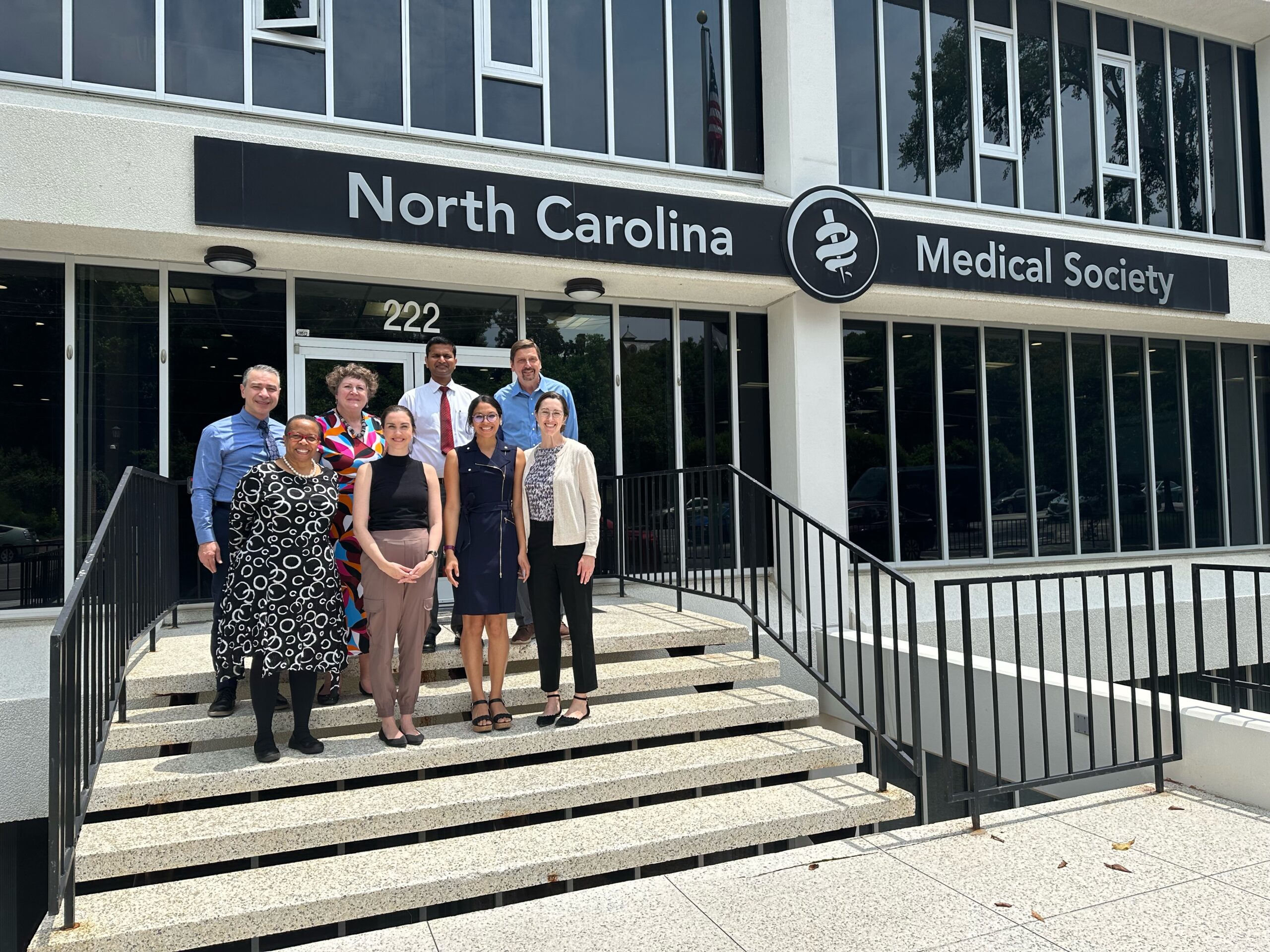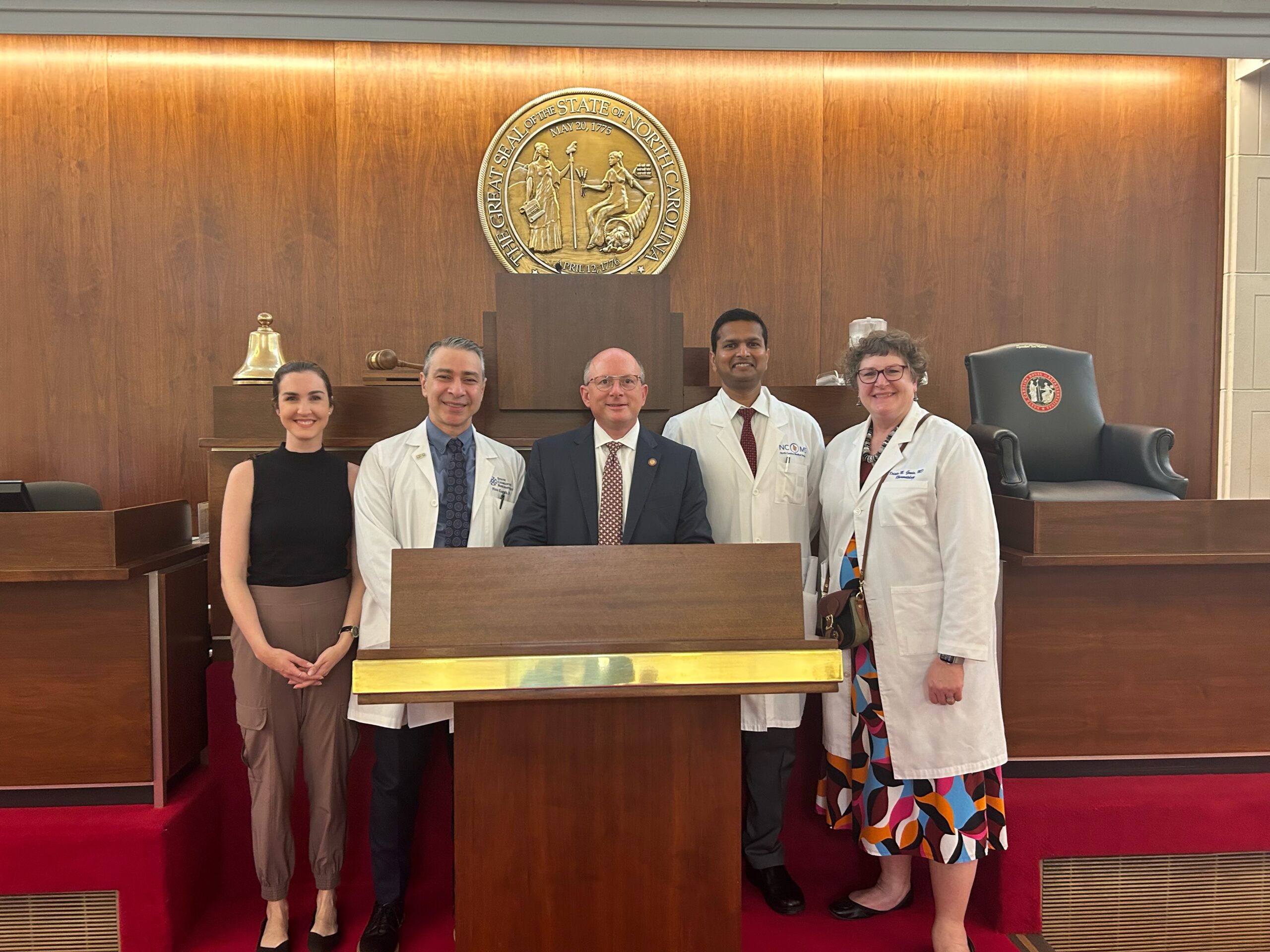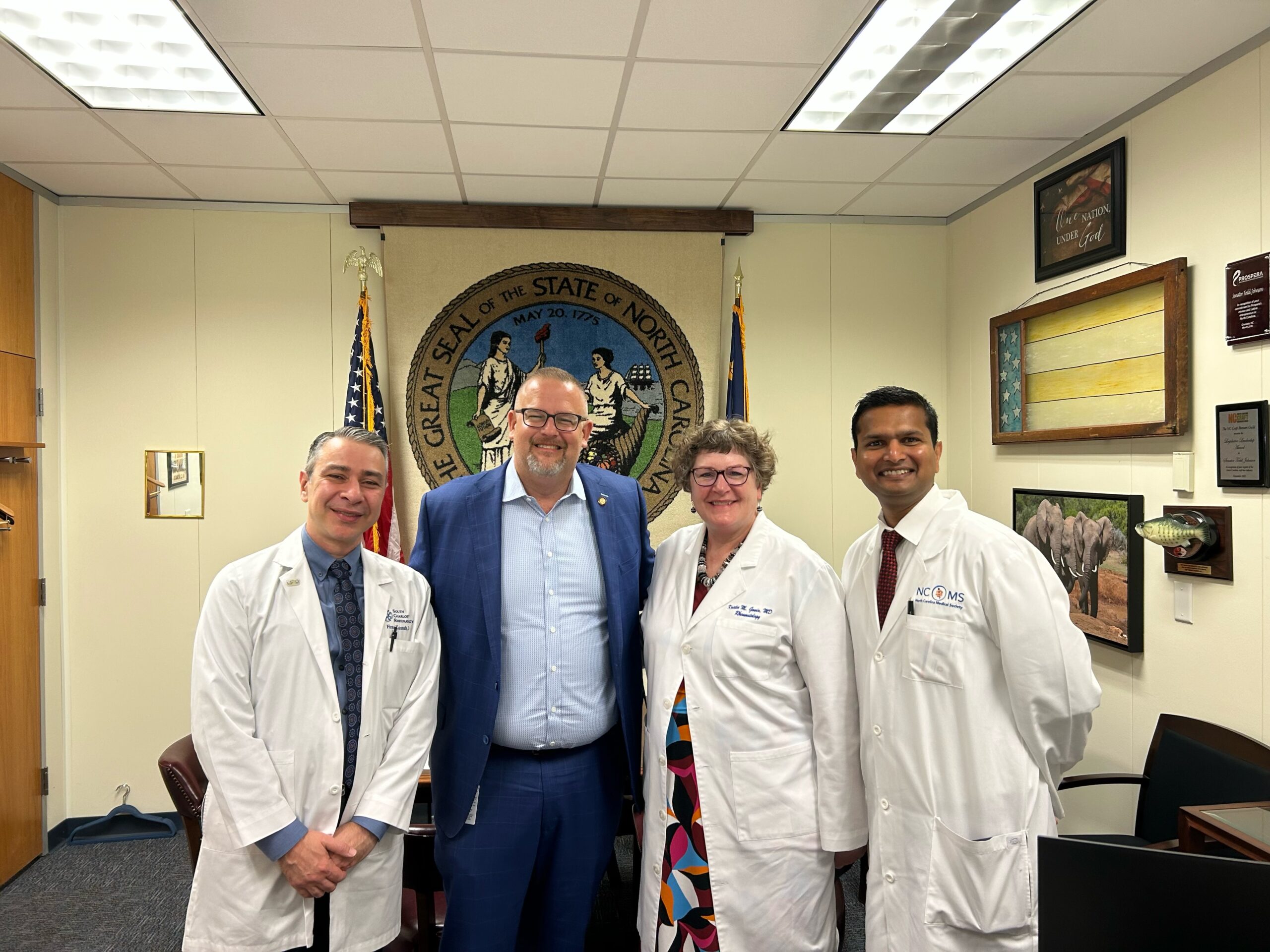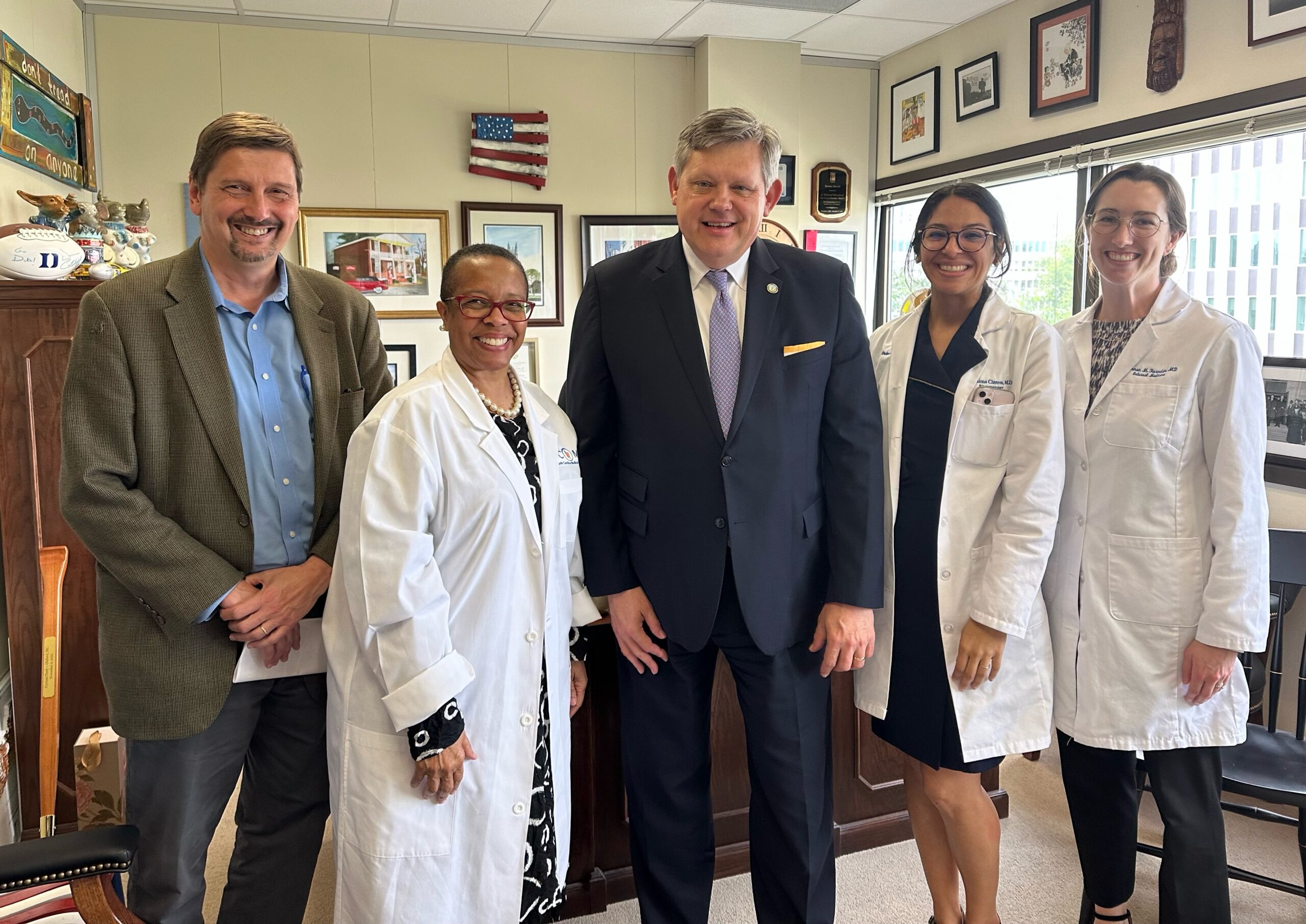NCRA’s First Advocacy Day



By: Dr. Firas Kassab
On Tuesday, May 23, the North Carolina Rheumatology Association (NCRA) embarked on a day of advocacy for rheumatology at our state capital. With a team of dedicated healthcare professionals, we made our voices heard in the halls of our state capital. It was an experience filled with camaraderie, thoughtful discussions and a shared vision of improving patient care and provider support.
Our amazing team of advocates included: Dr. Melton representing Fayetteville, Dr. Gowin from Asheville, Dr. Gupta hailing from Cary, Dr. Rivadeneira representing the University of North Carolina – Chapel Hill, Dr. Sims from Duke, Dr. Cintron, a fellow at Duke, Dr. Herndon, an Internal Medicine Resident at Duke, and myself from Charlotte. Together, we formed a dynamic group ready to take on the challenges ahead.
Our two priorities:
Our primary objective was to engage with State Representatives and Senators to discuss two top-priority issues that directly affect the field of rheumatology in our state.
The first issue we focused on was Prior Authorization Reform Bill HB 649.
We threw our support behind a new bill aimed at strengthening the requirements for prior authorizations, which insurers would hopefully abide by. This bill is an improvement over the existing law that has unfortunately not been effectively enforced. We were thrilled to learn that the bill had unanimously passed the House. We expressed our appreciation to the Representatives who supported it; however, we recognized that the bill will face hurdles in the Senate. We emphasized the importance of this legislation to the Senators, urging them to push it forward. Stricter requirements for prior authorizations will help patient care and streamline the administrative process for providers.
The second issue we tackled was the SAVES Act.
This bill proposes allowing Advanced Practice Providers (APPs) to work without proper supervision from physicians immediately after obtaining their degree in any specialty irrespective of whether they received adequate training. While we appreciate the valuable role APPs play in rheumatology and providing access to patients with rheumatic disease, we voiced our opposition because this actually can compromise the quality of care patients receive from inexperienced practitioners and in fact exposes APPs to significant liability. The timing of our participation was crucial, as there was a strong push by nursing societies to pass it. We feel that it is essential to ensure that all healthcare professionals, regardless of their level of training, work within their areas of expertise to provide the highest standard of care.
During our meetings with legislators, we shared powerful stories illustrating how these issues impact fellow colleagues across the state. Our focus remains on the challenges posed by prior authorizations, shedding light on the administrative burdens that hinder timely access to vital treatments. Each member of our group did a remarkable job advocating for rheumatology patients and providers, delivering our message in a positive and constructive manner. We hope that our efforts have effectively put rheumatology and the North Carolina Rheumatology Association (NCRA) on the map in our state capital. By providing legislators with a resource they can turn to in the future for clarification or to answer questions, we aim to foster an ongoing dialogue that leads to meaningful change.
Personally, I’d like to extend my sincerest thanks to everyone who participated in this important endeavor. Your willingness to dedicate time from your busy work and personal schedules to join us is truly commendable. We were especially thrilled to see trainees actively engaged and contributing to the cause. As they can attest, participating in this advocacy day was an enlightening experience that provided valuable insights into how healthcare policies and laws are shaped in our state. We hope that this experience will inspire even more participation in future advocacy days, as we continue to champion the needs of patients and providers.
Lastly, I would like to express appreciation to Hannah Rice of the North Carolina Medical Society (NCMS) and Brian Henderson of Hart Health/CSRO for their invaluable help in organizing this event. Thanks to their seamless coordination and efficient planning, the day ran smoothly and successfully.
Stay tuned for more updates on our advocacy efforts and the impact we hope to make in the future. Together, we can shape a brighter future for healthcare in North Carolina!



